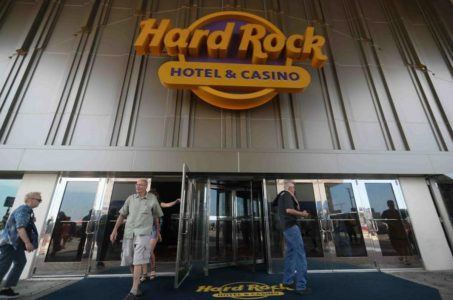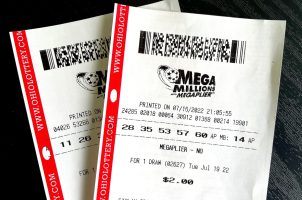Melco Resorts Purchases 20 Electric Buses for Macau, as Mass Market Focus Continues
Posted on: April 19, 2018, 02:00h.
Last updated on: April 19, 2018, 12:10h.
Melco Resorts has purchased 20 electric buses to transport guests around Macau, yet another sign that casinos in the enclave are transitioning their focus from the high-roller VIP to the mass market visitor.

In a press release, the company says the purchase is in line with “sustainability” being “one of the top priorities of Melco Resorts.” “The zero-emission fleet includes 18 tour coaches and two public bus style vehicles,” the statement read.
“Melco is committed to a greener Macau. With the purchase … we hope to make the most effective use of resources and actively mitigate the impact of our operations on the environment,” Melco Executive VP Akiko Takahashi declared.
Melco Resorts owns the City of Dreams and Studio City casino complexes on the Cotai Strip, as well as hotel Altira and forthcoming Morpheus.
All the major Macau casinos offer bus service to and from major entry points including the airport and several ferry terminals. The roads around Macau are inundated with casino buses transporting guests around town.
Mass Solution
Macau began transitioning from a VIP-centered high-roller paradise beginning in early 2014. The enclave’s casinos had just posted a collective $45 billion gross gaming revenue (GGR) win the prior year, and authorities in mainland China took notice and began to crack down.
People’s Republic President Xi Jinping included junket companies, or VIP touring groups that transport the country’s affluent from the mainland to the tax haven enclave, in his anti-corruption campaign. The close scrutiny led to the closure of dozens of junkets.
GGR fell 38 percent to $27.9 billion in 2016. But Melco, along with the five other licensed casino operators, Sands, MGM, Wynn, Galaxy, and SJM, had billions of dollars invested, and gaming floors and hotel rooms to keep occupied.
The solution was to cater to more of the mass market, and it’s beginning to pay off. After three consecutive annual losses, the casinos posted a 19 percent gain in 2017 to $33.2 billion.
Buses Over Rolls’
Roughly a mile south down the Cotai Strip from Melco Resorts’ Studio City is a prime example as to how the VIP no longer can solely support a Macau property.
In the Colane Village lies The 13, an unopened $1.6 billion, 200-room hotel that’s to target the ultra-luxury segment. Envisioned by flamboyant businessman Stephen Hung at the height of Macau’s fortunes in 2013, the project has been a fiscal disaster.
Despite the VIP crackdown by the Chinese federal government, Hung pressed on sparing no expense. While Melco Resorts is today buying 20 electric buses for its guests, The 13 purchased 30 custom Rolls-Royce Phantoms at a cost of more than $20 million.
It was the largest single order in the automobile maker’s history, and yet the hotel hadn’t even welcomed its first guest or even booked reservation.
Hung has since resigned from the development company. The 13 has missed repeated openings, but hotel officials say it will commence operations later this month without a casino.
Gaming experts at Bloomberg Intelligence say The 13 will struggle to attract the high-roller segment it seeks without a casino. “It would be nearly impossible to have gamblers book rooms separately with them,” analyst Margaret Huang said last fall.
Related News Articles
Most Popular
Las Vegas Overstated F1 Race’s Vegas Impact — Report
Vegas Strip Clubs Wrestle in Court Over Animal Names
Las Vegas Strip Stabbing Near The Strat Leaves One Man Dead
Most Commented
-
End of the Line for Las Vegas Monorail
— April 5, 2024 — 90 Comments -
Mega Millions Reportedly Mulling Substantial Ticket Price Increase
— April 16, 2024 — 6 Comments -
Long Island Casino Opponents Love New York Licensing Delays
— March 27, 2024 — 5 Comments -
Nearly Abandoned Mall Outside Vegas Soon to Have Only One Tenant
— March 12, 2024 — 5 Comments
















No comments yet